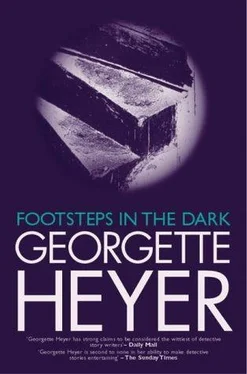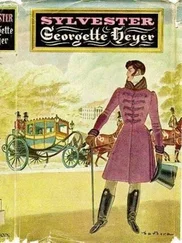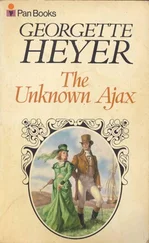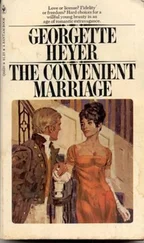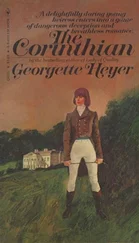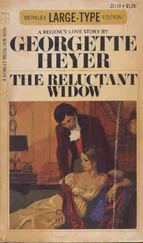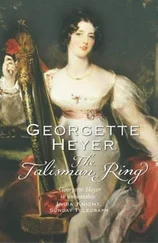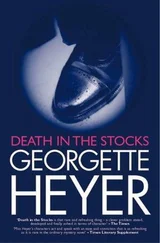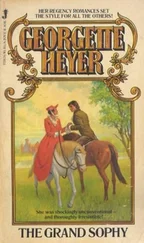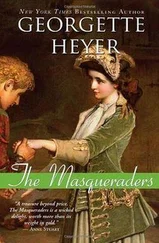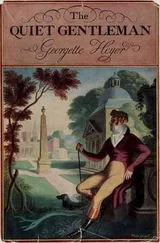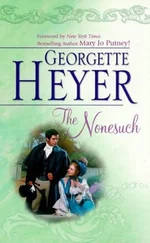Georgette Heyer
Footsteps in the Dark
"And I suppose this is the approach-course," said Charles Malcolm. "Full of natural hazards." His wife, Celia, replied with dignity: "That is the tennis-court." Charles made a derisive noise. "All it needs," she said, eyeing him, "is a little levelling."
"All it needs," said Charles rudely, "is a hay-cutter and a steam-roller. And this is the place you wouldn't sell!"
His sister-in-law took up the cudgels. "It's perfectly lovely, and you know it. As soon as Celia and I set eyes on it we fell for it."
"That I can believe," said Charles. "A mullioned window or two, and a ruined chapel, and I'd expect you two to go over at the knees. But Peter was with you. What did he fall for? Beer at the local pub?"
"There's a trout-stream at the bottom of the garden," Margaret pointed out.
"So there is," Charles agreed. "And another in the servants' hall for wet days. Bowers showed it to me."
"Simply because there was a pane of glass out of one of the windows!" Celia said hotly. "Of course the rain came in!"
Margaret tucked her hand in Charles' arm. "Wait till you've seen your bedroom. It's got linen-fold panelling, and there's a cupboard which is all part of it, and which takes you ages to find."
"That really is jolly," Charles said. "Then if anyone burgles our room he won't be able to find my dress-coat. I suppose I can mark the place with a cross."
"No, you have a compass, and take bearings," retorted his wife. "Come on in, and we'll show you."
They turned away from the tennis-court and began to walk back towards the house down one of the neglected paths that wound between flower-beds to the terrace on the south side of the building.
"Chas, can you look at it with the sun on that heavenly grey stone, and blame us for refusing to part with it?" Margaret exclaimed.
"I'll wait till I've seen my room," Charles replied.
But he had to admit that this house, which had been left to his wife and her brother and sister, was artistically all that could be desired. Built originally many hundreds of years before of grey stone, much of it was now ruined, and much had been added at different periods, so that the present house was a rambling structure, set in wooded grounds where oaks, which had been there when the Conqueror landed, reared up huge gnarled trunks from out of a tangle of undergrowth. A drive of about a quater of a mile twisted through the trees to the gates that opened on to the road which led to the village of Framley , a mile away if yuu went by road, but much less if you walked across the fields at the back of the house.
Down the road towards the village, but set back imside the Priory grounds, were the ruins of the chapel which had so captivated Celia's fancy. Dismantled during the Reformation, and later battered by Cromwell's cannon, not much of it now remained, but fragments of the walls rose up crumbling out of the grass. Here and there part of the walls remained to show the Gothic windows, but for the most part they were no more than a few feet in height.
The Priory itself had been restored so that the many rebuildings and additions had left little outward appearance of the old home of the monks. Celia, who had acquired a book on Old Abbeys, declared that the library, a big room giving on to the terrace, was the original refectory, but she admitted that the panelling was probably of later date.
The place had come to her quite unexpectedly. An uncle whom she, in company with Peter and Margaret, had visited at dutiful intervals during his lifetime, had bequeathed the Priory to his nephew and his two nieces. No lover of rural solitudes, he himself had never occupied the house. In his turn he had inherited it some five years before from his sister, who had lived there through marriage and widowhood. As she left it so it now stood, and no sooner had Celia Malcolm, and Peter and Margaret Fortescue seen it, than they declared it was just the place they had dreamed of for years. At least, the two sisters said so. Peter was less enthusiastic, but agreed it would be a pity to sell it.
It had been to let for quite a long time, but ever since the first tenants who rented the house two years after the death of its original owner, had left, no one had made even the smallest offer for it.
"Your uncle had a good deal of trouble over the house," had said Mr. Milbank, the solicitor. "When she lived in it his sister never made any complaint, but she was an eccentric old lady, and it's conceivable she wouldn't have cared. But the fact of the matter is, Mrs. Malcolm, the house has got rather a bad name. The people your uncle let it to took it for three years - and they left at the end of one. They said the place was haunted."
"Oo!" said Margaret. "What a thrill for us!"
The lawyer smiled. "I shouldn't build on it, Miss Fortescue. I think you'll find that it's nothing more thrilling than rats. But I thought I'd warn you. So that if you feel you'd rather not take possession of a reputedly haunted house you might like me to follow up this offer." He lifted up a sheet of note-paper that lay on his desk, and looked inquiringly at Peter.
"Is that the offer you wrote to us about?" Peter asked. "Some fellow who saw the board up when he was motoring in that part of the world, and wanted to know particulars?"
Mr. Milbank nodded. Celia and Margaret turned anxiously to their brother, and began to urge the desirability of owning a country house so near to town, and yet so ideal in situation and character.
The trout stream won Peter over. Charles, a young barrister with a growing prctice , had no time to waste, so he siad,in going to look at a house which his wife was apparently set on inhabiting whether he liked it or not.
He placed his trust in Peter.
" And nicely you've abused it," he said, over tea in thelibrary." For two months you three have dashed to and fro,doing what you called "getting it ready to live in." Incidentally you lulled my suspicions with lying stories about the house, till I almost believed it was something like your description. You' - he pointed an accusing finger at Margaret - "said it was the ideal home. The fact that there was only one bathroom and a system of heating water that won't do more than one hot bath at a time, you carefully concealed."
"Do you good to have a few cold baths," remarked Peter, spreading jam on a slice of bread and butter. "It isn't as though we propose to live here through the winter. Moreover, I don't see why we shouldn't convert one of the bedrooms into a second bathroom, and put in a better heating arrangement. Not immediately, of course, but at some future date."
Charles eyed him coldly. "And what about light? Oh, and a telephone! I suppose we can wire the house while we're about it. This must be what Celia called "getting a country-house for nothing." I might have known."
"Personally," said Celia, "I prefer lamps and candles. Electric light would be out of place in a house like this, and as for a telephone, that's the one thing I've been wanting to escape from." She nodded briskly at her husband. "You're going to have a real holiday this year, my man, quite cut off from town."
"Thanks very much," said Charles. "And what was it you said just before tea? Something about going to the village to order bacon for breakfast?"
"Well, you can take the car," Celia pointed out. "And you might try and get hold of a gardener in the village. I think the garden is rather more than you and Peter can manage.
"It is," said Charles, with conviction. "Much more."
The door opened at that moment to admit a middle aged lady of comfortable proportions, and placid demeanour. This was Mrs. Bosanquet, the Fortescues' aunt. She accepted a chair, and some tea, condemned a solid-looking cake, and embarked on bread and butter.
Читать дальше
